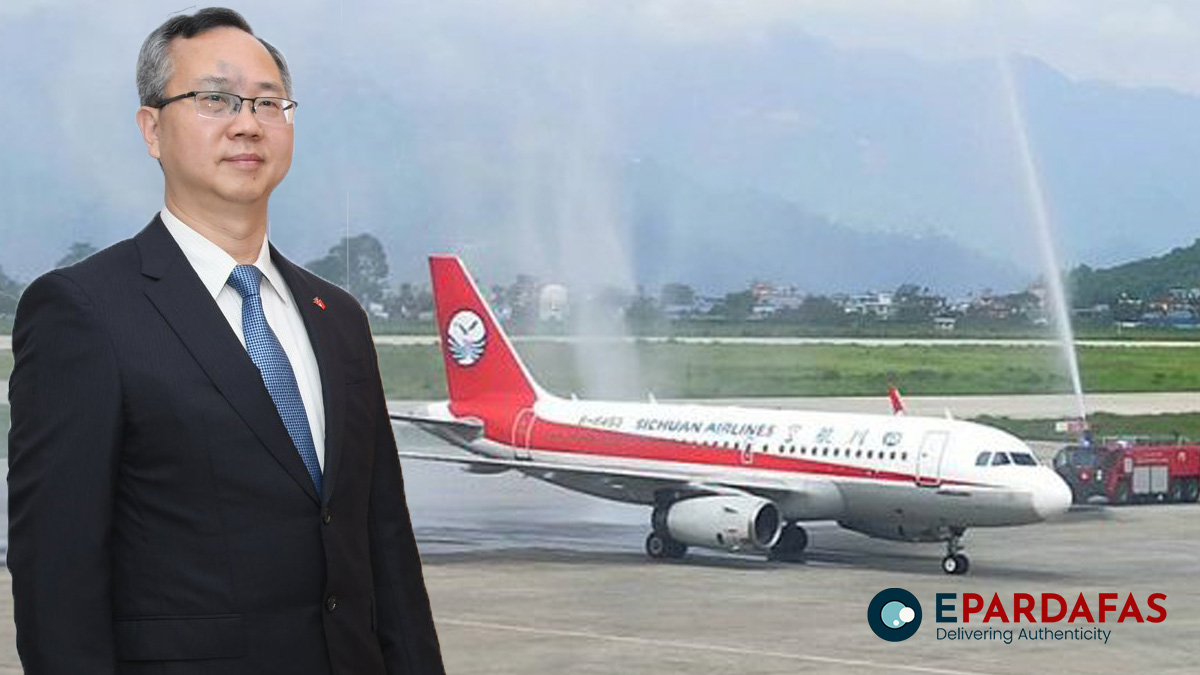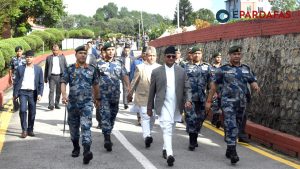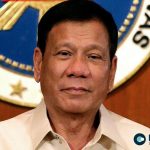
Chinese Ambassador Chen Song’s Remarks on Nepal’s Economic Development and Relations with India Spark Controversy
In a surprising departure from diplomatic conventions, Chinese Ambassador to Nepal, Chen Song, made remarks that garnered significant attention during a public event in Kathmandu. Ambassador Song seized the opportunity to underscore China’s economic development and suggest that Nepal and other nations might have lagged in formulating timely policies to achieve similar success. His remarks also touched on India’s relationship with Nepal, describing it as “less than ideal” at times.
The program took place at a hotel in Kathmandu’s New Baneshwor, with Speaker of the House of Representatives, Devraj Ghimire, in attendance. Ambassador Chen emphasized the untapped potential within Nepal’s agriculture sector and lamented the country’s failure to enact timely policies, which he believed had impeded its development in this critical domain.
He initiated the discussion by addressing Nepal’s electricity trade deficit, noting that Nepal exported electricity worth Rs 10 billion to India in the last fiscal year while importing electricity worth Rs 19 billion from India. This trade imbalance underscored the substantial challenges facing Nepal.
Ambassador Song also highlighted Nepal’s heavy reliance on agricultural imports from India, noting that within the first month of the current fiscal year, Nepal imported cereals worth Rs 7 billion from its neighbor.
While Ambassador Chen’s remarks were intended to stimulate discussion and encourage policy changes, they have sparked controversy and criticism. Foreign affairs expert and former Ambassador to Denmark, Vijay Kant Karna, criticized the statements as “undiplomatic” and accused China of meddling in Nepal’s internal affairs.
Karna asserted, “It seems that he (Ambassador Song) seriously lacked the figure of import and export.” He further expressed concern that Ambassador Song’s remarks constituted a direct intrusion into Nepal’s sovereignty and called for the Ministry of Foreign Affairs to summon the Ambassador for an explanation.
Foreign affairs expert Arun Kumar Subedi characterized China’s approach as a transition from conventional diplomacy to a more proactive and assertive form of diplomacy. Subedi highlighted the importance of Nepal aligning itself with the global democratic community.
Ambassador Chen emphasized China’s commitment to global engagement and showcased the Belt and Road Initiative (BRI) as a means to foster economic growth in developing nations. He encouraged Nepal to learn from China’s development model and adapt its economic structure accordingly.
Ambassador Chen also discussed China’s past economic challenges, attributing its closed economic model to external factors such as sanctions from the United States and the USSR. He underscored the necessity of tailoring an economic model to suit a country’s unique circumstances.
In conclusion, Ambassador Chen addressed weaknesses within Nepal’s agricultural sector, emphasizing its transition from an agricultural-exporting nation to one heavily reliant on agricultural imports from India. He expressed his dedication to working toward Nepal’s benefit and acknowledged that his perspectives may evolve as he continues to explore potential cooperation between China and Nepal during his tenure in Nepal.
Following is the Chinese Ambassador Chen Song’s speech:
This news article has been crafted with the assistance of the English version of Khabarhub.













Comments